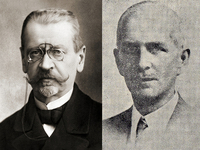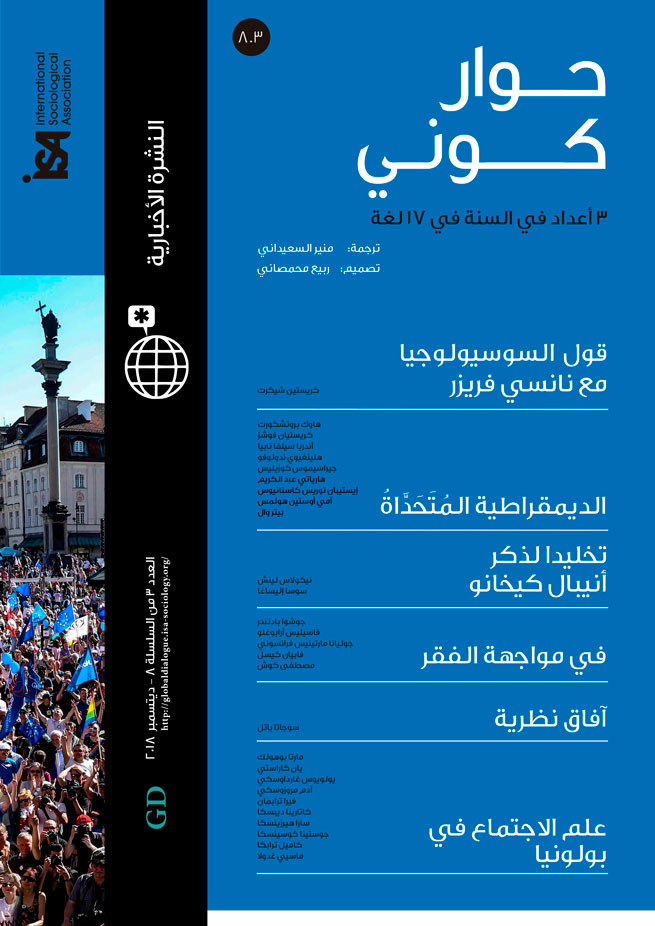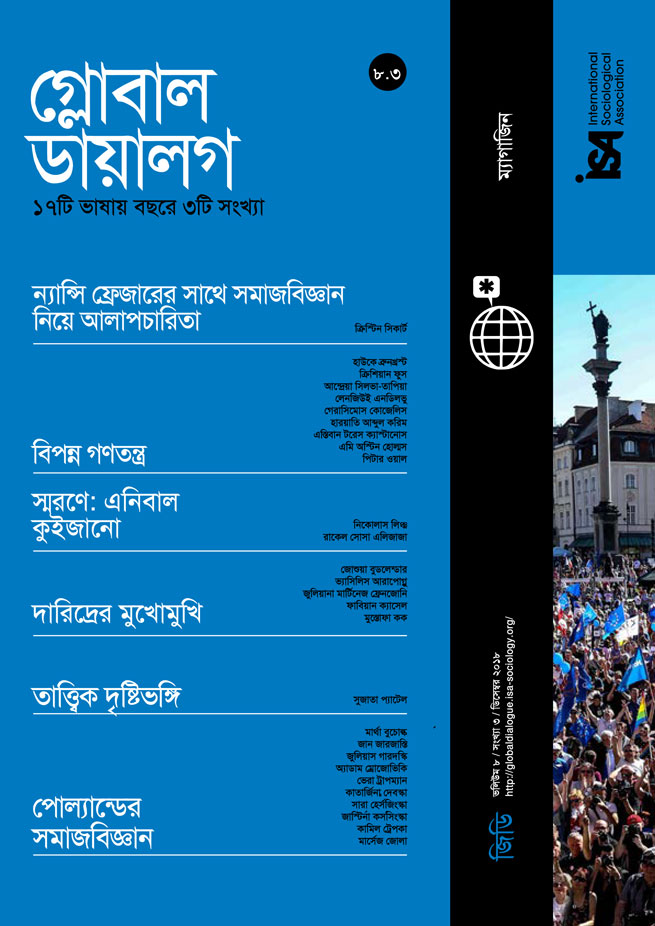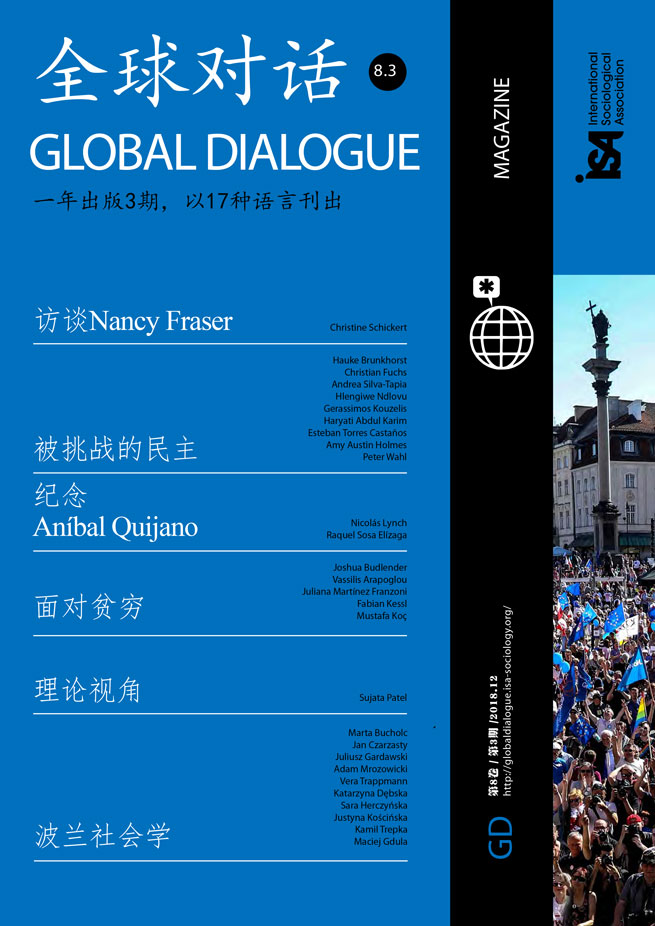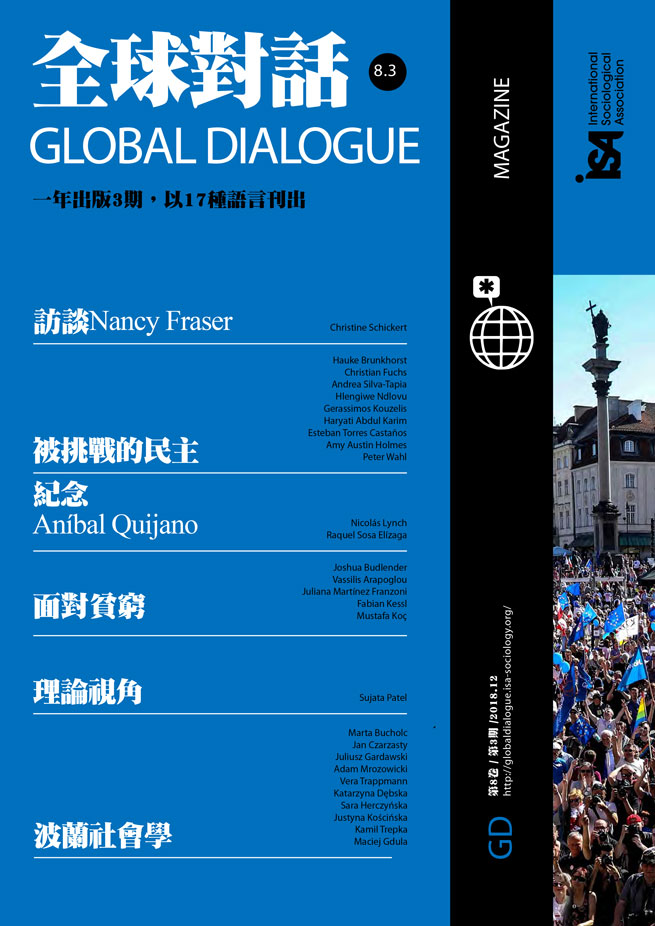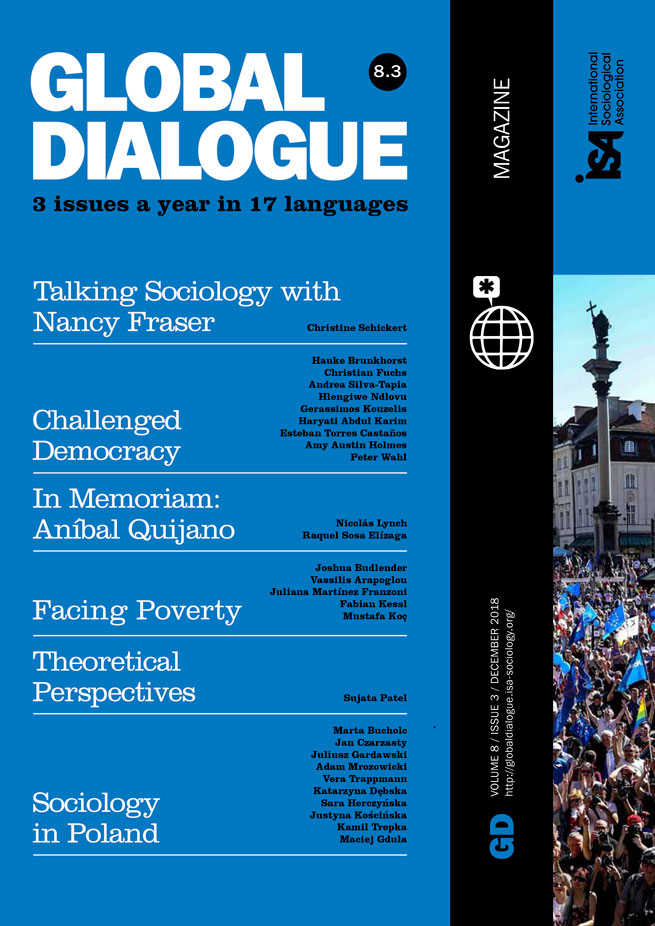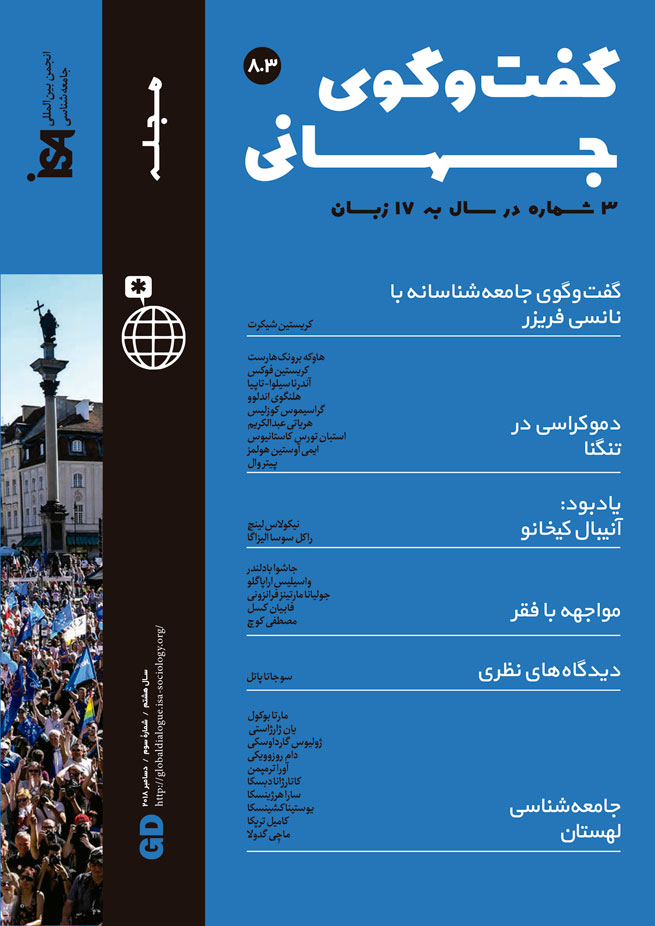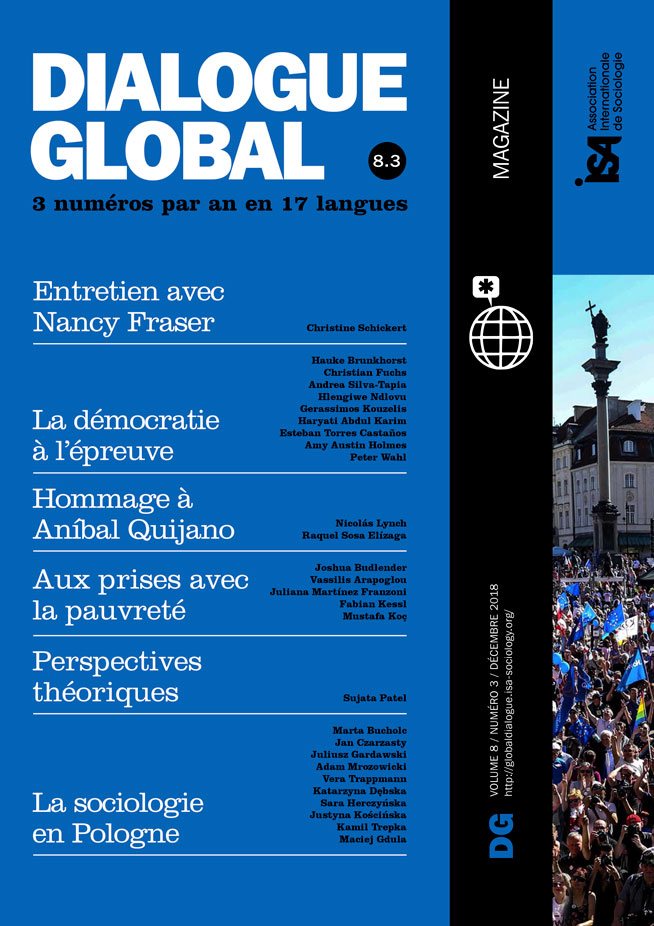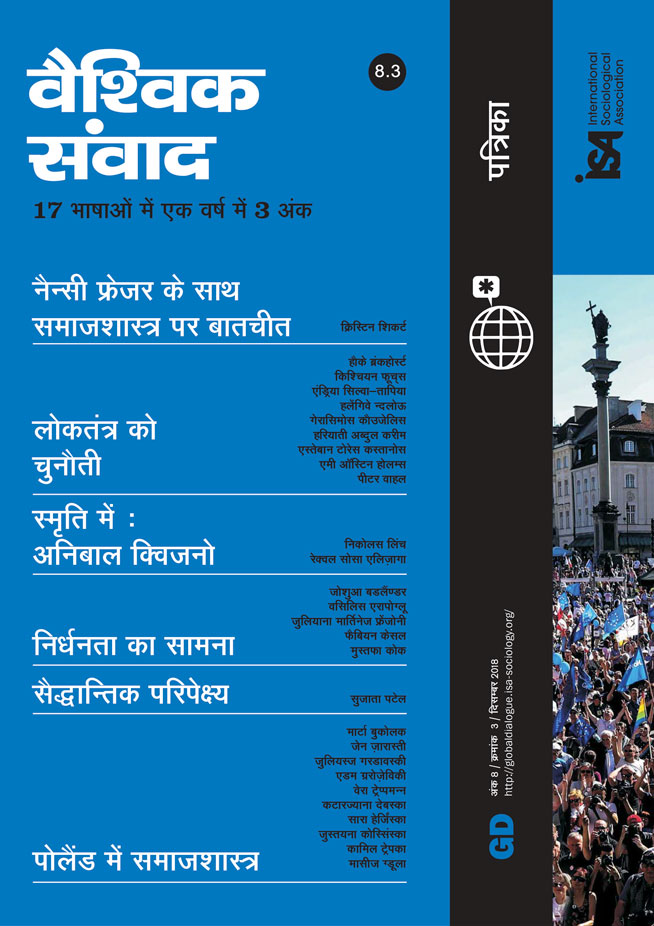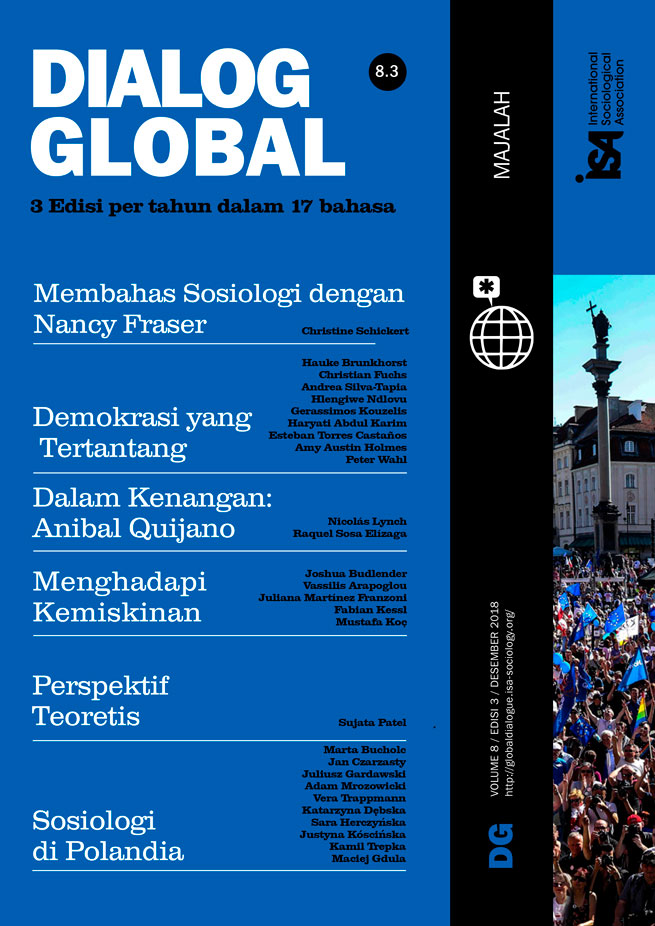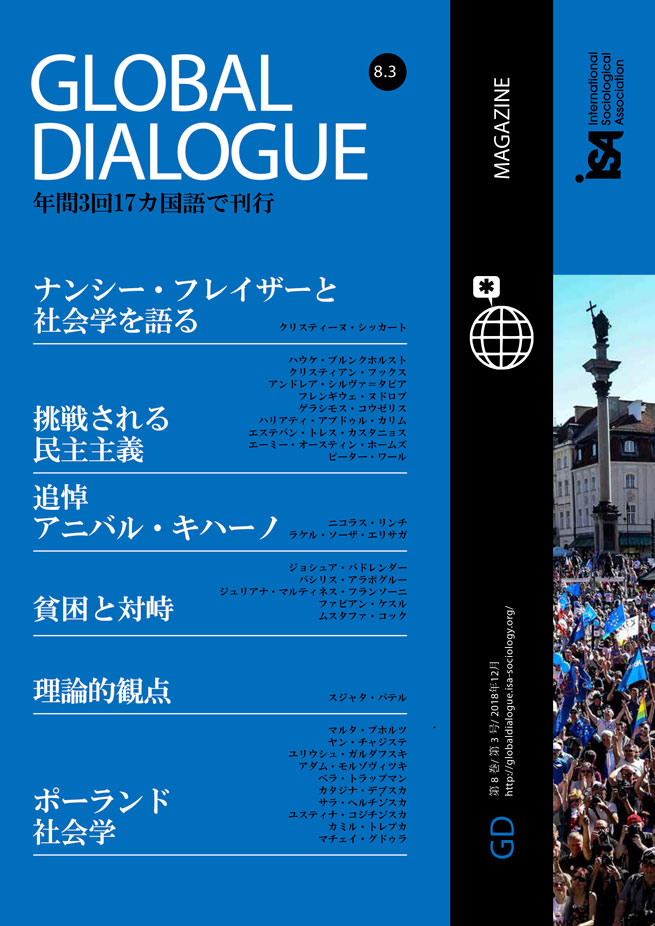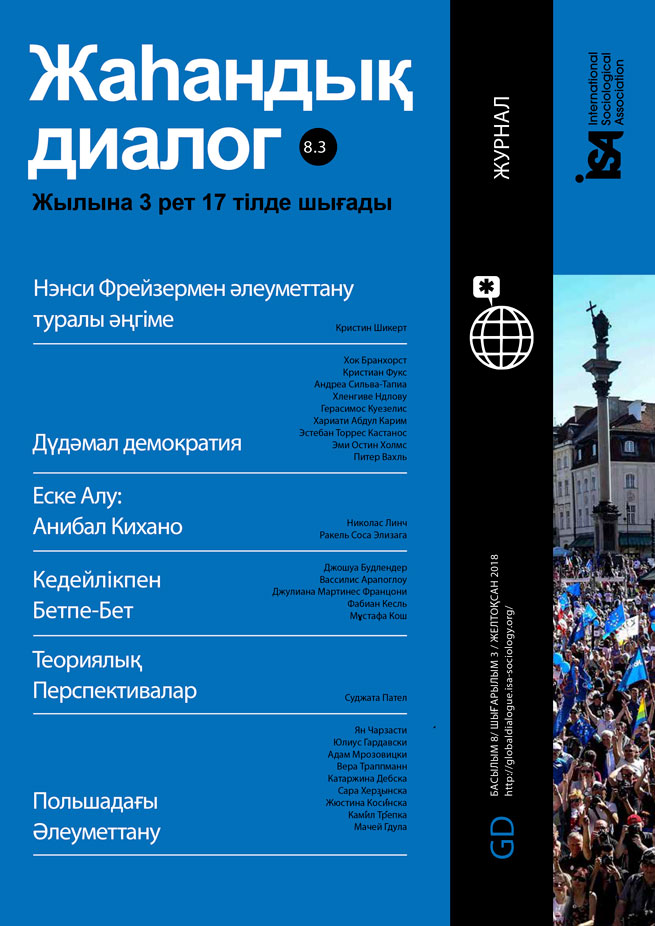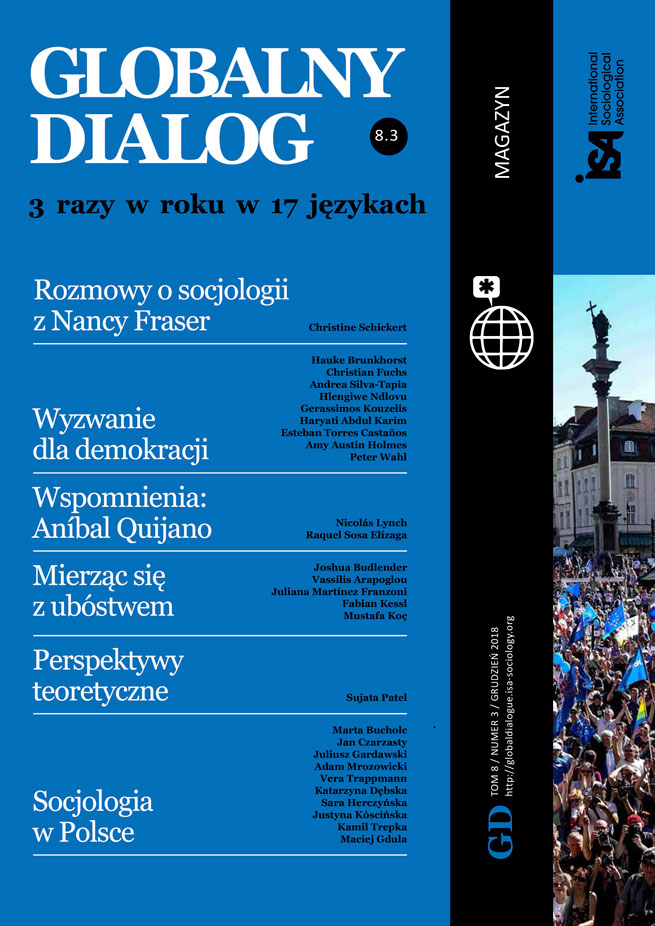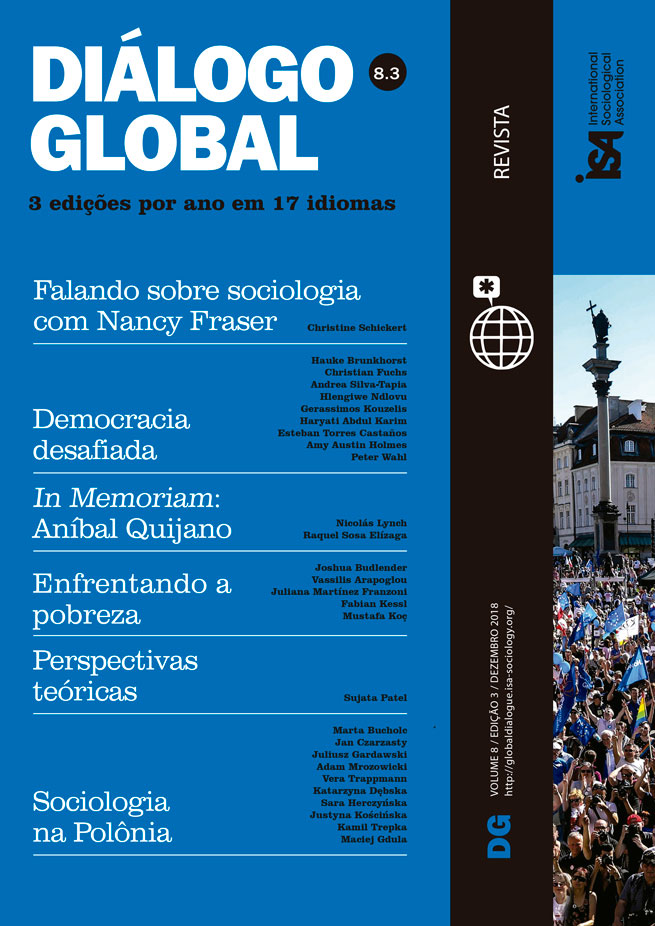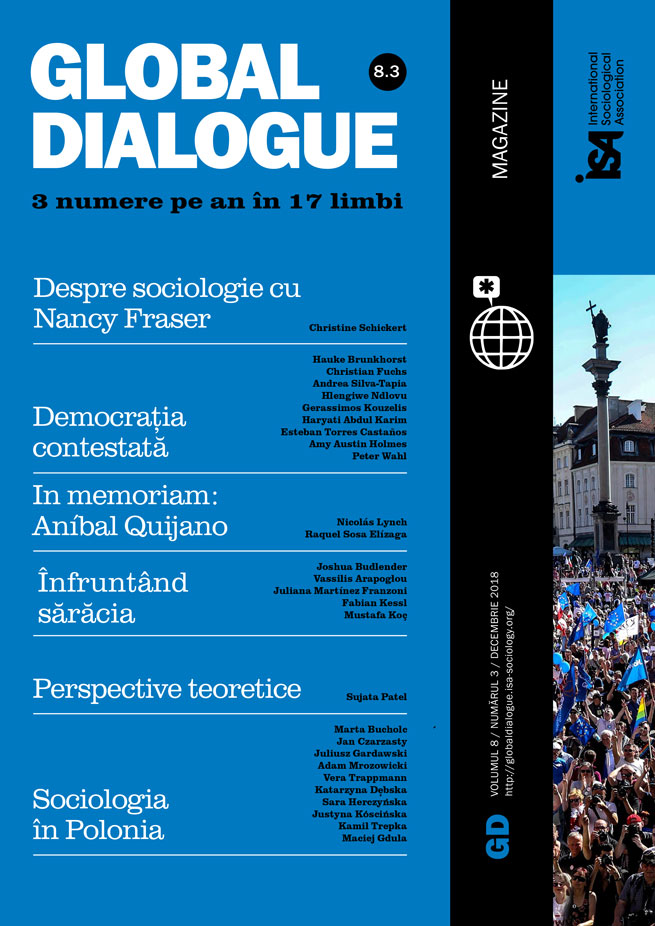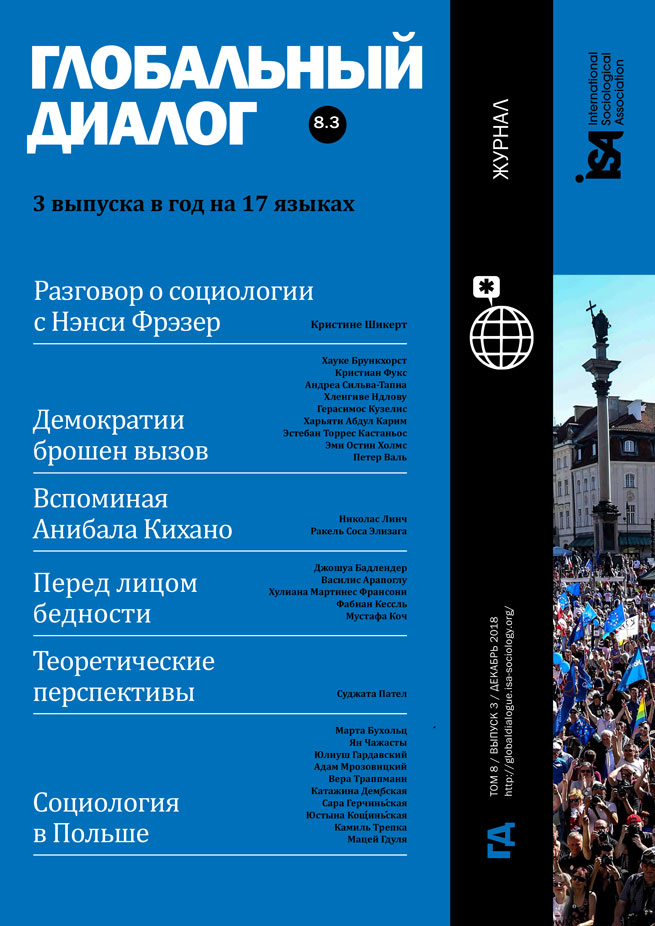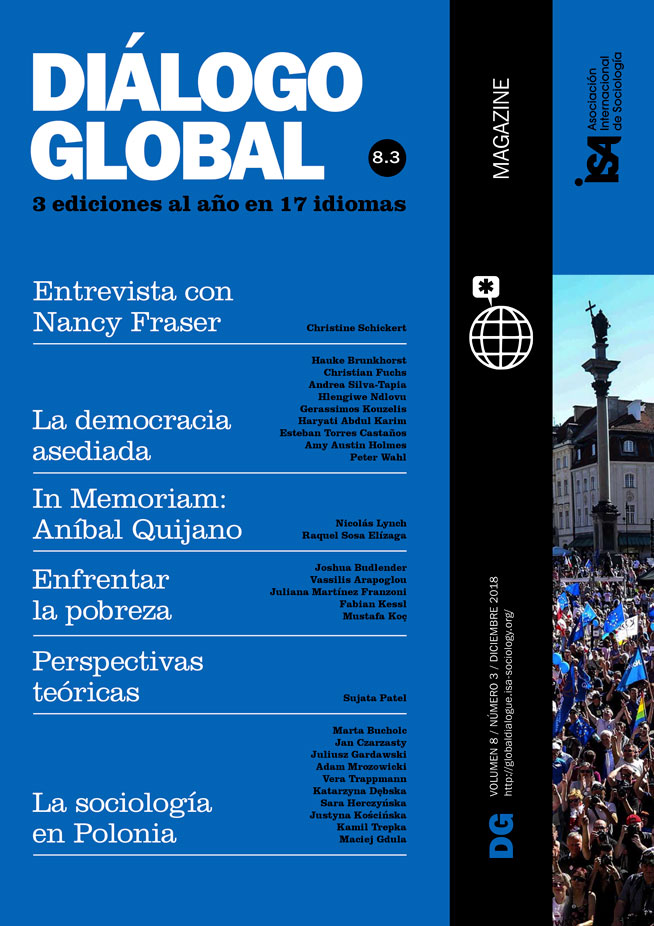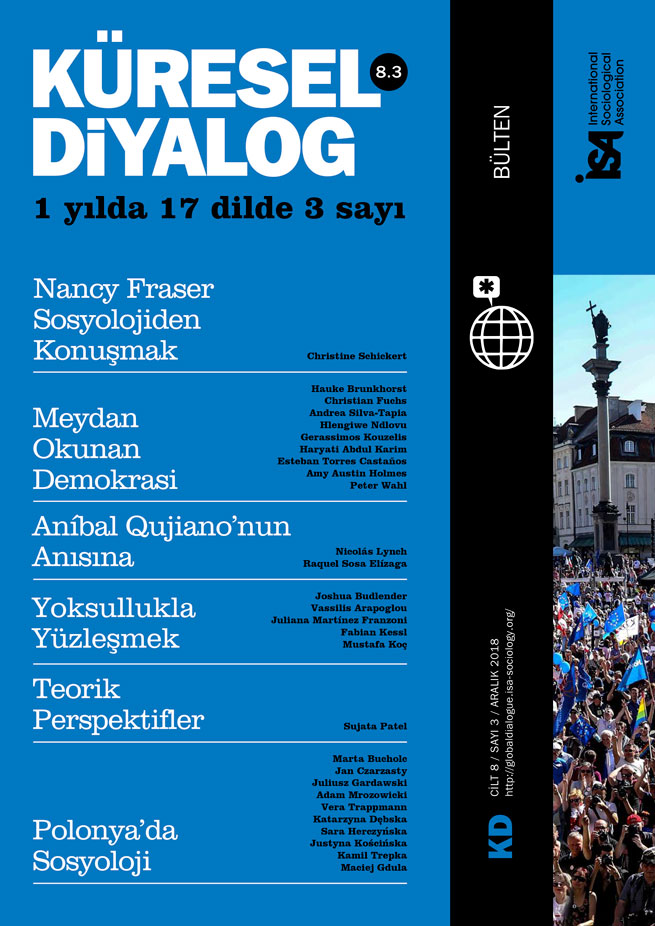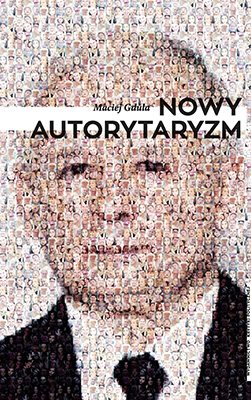In November 2017, it had been two years since the elections that allowed the Law and Justice (PiS) party to form its own government. While many rules of liberal democracy were violated during these two years, over 40% of voters still supported the government. It was at this point that my report “Good change in Miastko: Neo-authoritarianism in Polish politics from the perspective of a small town” appeared.
This report, based on research conducted in a small city located in central Poland – Miastko – provoked a heated discussion, in which journalists, politicians and scientists participated for several weeks. Some of its concepts and interpretations have become constant points of reference in ongoing debates on politics and society. Instead of celebrating the success of the report, however, I would like to think about its social conditions of possibility. This can be important for rethinking the strategy for sociology’s presence in the public sphere and for strengthening its role in not only describing but also influencing social processes. Although I refer primarily to the Polish context, it is not unique to the processes taking place in Poland.
A new public sphere
To reflect on the scope for sociology to increase its impact on public debate one must take into account the recent changes in the public sphere. Briefly put, these consist in the transition from the domination of the press to the hegemony of the Internet. The former public sphere – at least in relation to politics – was organized around the press, and “cultural intermediaries” – journalists, experts and politicians – played a crucial role in public debate. The spread of the Internet hit the printed press, both in terms of economic and symbolic power. In Poland this process was fast and dramatic. For example, the biggest newspaper Gazeta Wyborcza lost 75% of its readers between 2005 and 2017.
In the public sphere dominated by the Internet, there is greater dispersion of content production. This is handled by large webcasts, smaller specialized websites, as well as single producers such as YouTubers who often gather large audiences. The competition for social attention between these producers is becoming fiercer, with an emphasis on speed in reaction, greater conflict, scandal, and morality.
Weakness of intermediaries and sociology
Weakening barriers for entry into the public sphere translate into the spread of false information and proliferation of discourses which intentionally break with any accountability by reference to truth, giving rise to the concept of “post-truth.” The brutal competition for social attention is pushing out journalism based on longer processes of collecting materials and producing complex texts. The way to secure the existence of many media is to create an identity-related audience, connected with the medium by a sense of moral superiority and participation not so much in a discussion about public issues, as in a civilizational struggle.
Politics and discussion about public matters also adapt to these conditions and politicians become “media militants” representing radical views and providing clickable statements.
The audience participates in fast, aggressive, and moral communication, but there is still space for knowledge that relates to important public issues and at the same time confronts them with the results of research. The fierce competition between producers means that public debate tends to be sterilized and moves within the scope of a quick commentary. Traditional journalism is running out of time and money. In this situation, sociological knowledge that provides a new interpretation of reality meets with great interest and response, influencing the direction of public debate.
Doing sociology that matters
What then are the rules for creating such knowledge? On the basis of the report about Miastko and its reception, I will risk formulating a few theses.
First of all, the moment when the text appears is important. In Poland, the report on sources of support for PiS appeared at a time when some of the previously used explanations became less and less convincing. For example, the common view was that while PiS promised to settle accounts with the elite, it nevertheless created new elites, with a tendency to corruption, which should have led to a fall in support for betraying its ideals. Meanwhile, nothing like that happened and PiS still enjoyed the support of 40% of the population. The report explained this phenomenon with the notion of neo-authoritarianism that, alongside other issues, addressed the role of a leader in controlling their own elite and guarding the direction of political change.
For the study to have an impact, synchronization with ongoing social processes is important. Of course this does not depend entirely upon sociologists but we cannot ignore the question of the pace of production. It must be much faster than traditional academic production so as to relate to issues currently relevant to a wider audience. To deepen the research on PiS supporters it would be ideal to conduct additional research in several locations, increase the number of interviews, and elaborate them thoroughly. The problem is that the results of these efforts could occur, for example, after the next election, when they would only be historical.
The second important issue is the relationship with common sense knowledge. Academic discourses are becoming more complex, and research problems and their conclusions are constructed and presented in ways that are challenging even for an educated reader. When constructing knowledge that is supposed to have a social impact, we must refer to widespread judgments, even if – and perhaps especially when – we disagree with them. It seems important not to reject them as evidence of immaturity, ignorance, mental limitations, etc., but to treat them as judgments subject to verification.
In the case of our research in Miastko, there were several popular judgments regarding PiS supporters. One of them was the belief that PiS supporters are primarily people who are excluded or at least have a sense of deep harm. This was not confirmed by biographical interviews, because the vast majority of respondents talked about their lives in terms of achieving their goals or even in terms of success. Another conviction that we took into account was the assumption that support for PiS is based on gratitude for funds from the program Family 500+ (a monthly benefit of approximately 120€ for everychild after the first). The respondents voting for the PiS did not define this program in terms of satisfying personal needs, but interpreted it as proof of the solidarity of the state and a sign that Poland is finally joining developed countries in carrying out a comprehensive policy supporting families.
Thirdly, sociological knowledge should introduce the complexity that is lacking in public discussions. People like simplifications, but not all the time! If there is knowledge that connects with their experience and opinions, but deepens them or engages with them, it will be of interest. People who read the report on Miastko were interested, for example, in various criticisms of the elites formulated by representatives of lower and middle-class PiS supporters. For the former, the critique was based on pointing out the alienation of the elite and its distance from ordinary people. For the latter, i.e. for the middle class, the elite had lost its moral mandate to rule by compromising itself with corruption. This was the first occasion after a very long time that the topic of class diversity had appeared in Polish public debate.
Against stereotypes, people are interested in complex and demanding content. However, this must be more than a display of scientific complexity. Simplifying the message, which consists in popularizing knowledge with the aim of generating conflict and competition for social attention, is also not a way for sociologists. Instead, complexity should be introduced to cause irritation and friction in the public discourse.
The role of sociology
What can we gain from sociology that generates socially resonating knowledge? Realizing that there is no answer that will satisfy all sociologists, I will list options that are particularly important for me.
Sociology of this type has a chance to counterbalance current forms of communication that have a tendency to end in ritual conflicts, in which the brutalization and simplification of the message reign supreme. We cannot blame the journalists and politicians for this state of affairs. They operate in specific conditions they cannot easily negotiate. However, there is no reason why these rules cannot be trimmed by sociologists, providing knowledge that counterbalances the negative tendencies haunting our public communication.
An important task of sociology is to give a real voice to people for whom there is little room in the public sphere. For me it is particularly important to create a space for the popular classes and show their perspectives and experiences.
The third question is how sociology places itself against other actors in the public sphere. In my opinion, the closest thing is to perceive it as opposed to journalists and politicians. Sociology is different due to its sensitivity and the knowledge it provides, as well as its autonomy from rivalry for social attention and distance from the pressure of political conflicts. This type of sociology may be a counterbalance to other participants in the public sphere by placing restrictions on their power to define social reality.
Maciej Gdula, University of Warsaw, Poland <gdulam@is.uw.edu.pl>


